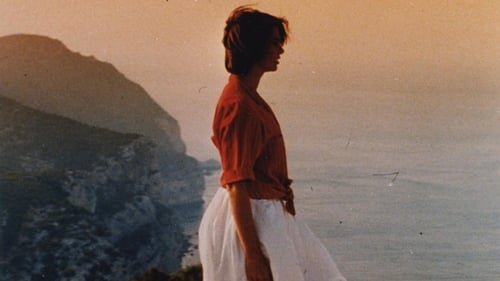Glicínia Quartin
Рождение : 1924-12-20, Lisbon, Portugal
Смерть : 2006-04-27

A documentary about the actress Glicínia Quartin on her 80th birthday. Her family, the anarcho-syndicalism, readings at his parents' house, prisons, experimental theaters, surrealists, the encounter with José Ernesto de Sousa on the unfolding of Cinema Novo with “Dom Roberto”, Italy, fantasy, Beckett, Genet, Vitor Garcia, the encounter with Luís Miguel Cintra - a life in motion.

Mrs. Blumenstein
Автобусные остановки, интервью при приеме на работу, грязные кафе, метро, ночь, торговые центры района, магазины, стоянки автомобилей, больницы, встречи в пивных, где убивает время Антониу...

Dona Rosa
A woman gets into a fight with her boyfriend, concerning her lack of humanism. Leaving him abruptly at the Santa Apolónia Station, she strikes a conversation with an interesting homeless man whom she decides to take home to just to show her boyfriend that she cares.

Ti Delfina
The elder matriarch of a dysfunctional family is mistankenly declared dead.

It’s been a year since we were together. A year since you left me, or I left you. What does it matter? And suddenly here you are in front of me, smiling, radiant, pregnant. And there’s me, who thought he was cured of you.

Short film.

aunt's mother
The film presents us with a reflection on the Spanish Civil War in the Portuguese society, At a time when Salazar ruled.

Old Woman
A blind beggar is robbed of his chest of money. The theft leads to a dramatic situation in the street where he begs every day.

D. Angela
Catalyst in the story of crossed paths is a 1957 Ford Fairlane being driven through Portugal’s Alentejo region to a new owner. Film’s overly protracted opening has car’s drivers (Filipe Cochofel, Antonio Pedro Figueiredo) joy riding the night away until the roadster breaks down. Momentum picks up at sunrise with their attempts to fix the car. A retired mechanic-turned-beekeeper with a heart condition (Canto e Castro) does the trick and convinces Figueiredo to take him cross-country on a motorbike to look up an old friend. Cochofel and the mechanic’s alarmed niece (Maysa Marta) follow in pursuit. The old man dies peacefully on the road, but Figueiredo, having wholeheartedly grasped his deliverance mission, keeps going.

Highschool Teacher Maria Dias
Можно сказать, что Хорхе счастливый человек. Жарким летним вечером Хорхе возвращается домой. Этой ночью он встретится с японским промышленником, который позволит ему оставить место школьного учителя и вернуться к своей работе химиком. Но когда он возвращается домой, в доме кто-то есть. Кого-то, кого он не знает. Кто вломился. С этого момента все будет по-другому...

Old lady with a book
Summer of 1964. The professor Carlos and the couple Dário and Alda spend time together in the beach during vacations. Away from the colonial war, everything seems lost in time.

Büchner's mother
Ambulatory history, freely inspired by Georg Büchner's biography (1813-37) and the reasons that led him first to political intervention and then to strict isolation. With students of unidentified present time (1968? 1970?), the themes developed, in Büchner, are triggered by the publication of "The Messenger of Hesse", a pamphlet addressed to the peasants, urging them to revolt. Their misunderstanding, as well as the repression of the young revolutionaries, leads Büchner to a particularly skeptical and painful attitude...

Amelia
Director Jorge Silva Melo has developed a viable, though highly intellectual mystery story about the world of art and culture and murder in this somewhat theatrical presentation. When German artist Bernd Hoffmann (Michael König) arrives in Lisbon to oversee the installation of his paintings in a joint exhibition with another Berlin artist, Hanna Brauer (Charlotte Schwab), Hanna never shows up. Hoffmann is puzzled because he is certain he saw a video sequence with Hanna at the exhibition, and he begins to look for her. Another Lisbon cultural center, a theater, is also having problems that may or may not be related -- and the mystery deepens when Hanna is found dead, either by her own hand, or murdered.

A woman translates the front page of H.P. Lovecraft's book “The Silver Key”. Her husband, a journalist, listens. The book describes the conflicts between the real and the imaginary, and tells how Randolph Carter, the film's character, leaves everyday life in search of his childhood dreams.

An adaptation of two short stories by Passos Coelho, essentially shot in a valley that is a territory threatened by floods, the film is a cinematographic chronicle of the rural worker in the area of Montemor-o-Velho.

Set in a little remote village, where everyone is very religious and primitive, it tells the story of Joana, the most beautiful girl in village. She is badly regarded by all other women because they envy her and her affairs with men. As soon as accidents start happening involving her (at some point, she holds an already sick baby and he eventually dies), the women (and slowly, men too) in the village start claiming that she is possessed by the devil. At first,she doesn't believe it. They ask for two priests to exorcise her, but they leave and say to the people that she isn't possessed at all, and that people need to relax. But, little by little, they start convincing Joana that she is really possessed and she starts entering a stage of slight madness and behaving like she is. So, people "believing" that she isn't going to die, and that the demon will leave her body, with her permission, they end up burning her alive...

Maria
João Barbela is poor man who lives out of charity - what coins the people of Lisbon's popular districts give him as 'pay' for his puppeteering work. For the kids, he is like a king, Dom Roberto = puppet). When he meets Maria, an equally poor girl, he fancies to change her life, and get her a house, maybe marrying, and being happy together.Life does not exactly have a happy ending, like he managed with his puppets 5-minute plays...














